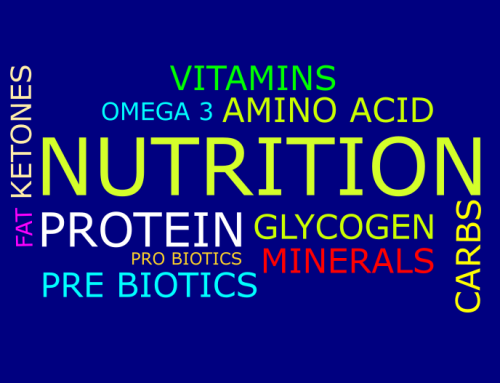Omega 3 is an essential fatty acid that is hard to find in a vegan diet so you may need to take supplements. Algae based Non gel capsules are available but are expensive compared with fish oil alternatives.
You can reduce the amount of omega 3 you need by cutting down on omega 6, this is easy to do and a really good idea.
Both omega-3 and omega-6 are fatty acids and important components of cell membranes. They're used to make many other substances in the body such as those involved with regulating blood pressure and inflammatory responses.
Omega-3 fatty acids are thought to protect against heart disease and it’s known that they have anti-inflammatory effects.
There is also growing interest in the role of omega-3 fatty acids in the prevention of diabetes and certain types of cancer.
Detailed benefits of Omega 3 Include
- Improved heart health: Omega-3 fatty acids can increase "good" HDL cholesterol. They also reduce triglycerides, blood pressure and the formation of arterial plaques.
- Better mental health: Omega-3s can reduce the symptoms of depression, schizophrenia, bipolar and psychotic disorders.
- Reduced weight and waist size: Omega-3 fats play an important role in weight management and can help reduce your waist size.
- Decreased liver fat: Omega-3s can help decrease the amount of fat in your liver.
- Better infant brain development: Omega-3s are extremely important for brain development in babies.
- Reduced inflammation: Omega-3 fats are anti-inflammatory, This means they reduce the inflammation in your body that contributes to many chronic diseases.
- Reduced risk of dementia: Omega-3s may slow the decline in brain function in old age and also help improve memory in older people.
- Better bone health: People with higher omega-3 intake and blood levels tend to have better bone mineral density.
- Help with asthma: Omega-3 intake can help reduce the symptoms of asthma.
The human body can produce all the fatty acids it needs, with the exception of two: linoleic acid (LA), an omega-6 fatty acid, and alpha-linolenic acid (ALA), an omega-3 fatty acid.
These have to be consumed from the diet and are therefore termed “essential fatty acids”. Both of these fatty acids are needed for growth and repair, but can also be used to make other fatty acids.
For example: arachidonic acid (AA) is formed from LA (AA can be found in animal sources but not in plants) and EPA and DHA can be made from ALA as well as being obtained from animal sources. ALA and LA are both found in plants and seed oils.
Two very important Omega-3 fatty acids, eicosapentaenoic acid (EPA) and docosahexaenoic acid (DHA) can be made from ALA but humans can only convert about 8% of ALA to DHA and EPA so it’s recommended that these are included in the diet by eating oily fish (salmon, mackerel, herring). or by taking a supplement.
How Vegans can get enough Omega 3 supplement based on Algae.
A vegan diet is likely to be deficient in EPA and DHA which usually can’t be made in sufficient quantities from ALA so it’s likely they will need a supplement.
There are many cheap fish oil supplements available but of course these aren’t suitable for vegans who will need a supplement made from Algae oil.
Algae oil comes from the marine algae that the krill and then the fish eat. In fact, the reason fish oil contains so much Omega 3 is because its main source of food is this algae.
Algal oil doesn't contain any contaminants, such as heavy metals. This makes it a particularly good option.
Algae contain high levels of DHA, but depending on the species it doesn’t always contain EPA so you need to check this before you buy.
EPA and DHA have separate roles but they work synergistically so you need them both. Taking a supplement that contains just one of these essential Omega 3 fatty acids may have some health benefits, but you still need the others, perhaps from converting ALA.
What is omega-6
Though omega-6s are considered “good” fats because they lower LDL (“bad”) cholesterol, high amounts or very high ratios of omega-6s to omega-3s may increase inflammation in the body, which in turn may contribute to heart disease, cancer, asthma, rheumatoid arthritis, and other chronic health problems.
The most common source of omega 6s is linoleic acid, found in corn oil, soybean oil, safflower oil, cottonseed oil, sunflower oil, poultry, and some nuts and seeds.
These oils are cheap to produce, so many companies use them in processed foods like sweets/candy, biscuits/cookies, crackers, popcorn, granola, dairy creamer, margarine, frozen pizza, and other snacks.
Soybean oil is so overused that it constitutes 20% of the calories in the average Western Diet. Many of the oils are also genetically modified and produced with toxic solvents.
Omega 6 oils are unstable because they’re made of polyunsaturated fats. Cooking at high heats, microwaving, or frying will oxidize the fats. Oxidized omega 6 does damage to your DNA, inflames your heart, and raises your risk for several types of cancer, including breast cancer. It also interferes with brain metabolism.
Omega 6 fats are necessary for survival, but they’re not nearly as beneficial as omega 3s. Omega 6 fats help with brain function, muscle growth, and hormone production, but they also cause inflammation, and they compete with omega 3s in the body.
Elevated omega-6 consumption is associated with an increase in all inflammatory diseases.
The list includes (but isn’t limited to):
- cardiovascular disease
- type 2 diabetes
- obesity
- metabolic syndrome
- irritable bowel syndrome & inflammatory bowel disease
- macular degeneration
- rheumatoid arthritis
- asthma
- cancer
- psychiatric disorders
- autoimmune diseases
Omega-6 competes with omega-3, and vice versa
Omega-6 and omega-3 fatty acids compete for the same conversion enzymes. This means that the quantity of omega-6 in the diet directly affects the conversion of omega-3 ALA, found in plant foods, to long-chain omega-3 EPA and DHA, which protect us from disease.
Several studies have shown that the amount of omega-6 in our bodies is inversely related to the concentration of omega-3. Studies have also shown that greater amounts of EPA & DHA reduces the availability of AA
Over the course of human evolution there has been a dramatic change in the ratio of omega-6 and omega-3 fats consumed in the diet. This change, perhaps more than any other dietary factor, has contributed to the epidemic of modern disease.
It’s best to consume just enough omega 6s to function, but no more, and to balance that with lots of omega 3s.
Humans evolved to consume omega 6 to omega 3 ratio of 4:1 that’s 4 omega 6s for every 1 omega 3. Anti-aging experts suggest going even further, maintaining a 1:1 ratio or higher in favor of omega 3s.
The ratio of omega 6 to omega 3 in the typical Western diet is anywhere between 12:1 and 25:1 which is really bad for us.
As mentioned previously getting enough omega-3 can be a challenge for vegans so another way to get around the problem is to dramatically reduce your omega-6 intake.
This can be a challenge in itself as Omega-6 is everywhere and in everything we eat. Of course eating a plant based whole food diet is a great start and this nutrition website has a great tool for checking the amount of Omega-3 and Omega-6 in popular foods.
What is the Recommended Daily Value of Omega 3
There is no set standard for how much omega-3 you should get each day. around 500 mg of EPA and DHA combined seems to be a sensible amount.
The FDA claims Omega 3 is safe if doses do not exceed 3,000 mg per day.
The European equivalent of the FDA, the EFSA has declared that up to 5,000 mg per day from supplements is safe.
There is no evidence that taking more than 5,000 mg of omega-3 has any benefits






Leave A Comment
You must be logged in to post a comment.